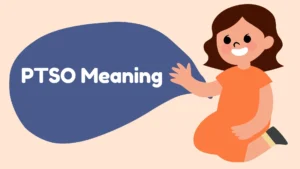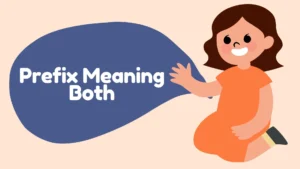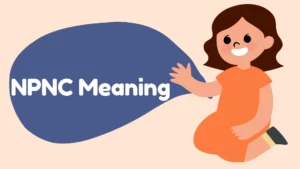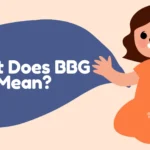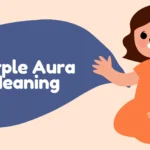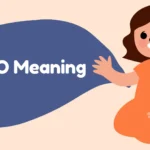The term “unconditional discharge” often arises in legal, professional, and even casual discussions, yet many people aren’t entirely sure what it means. At first glance, it might sound like a complete release from some form of duty or punishment — and in many ways, that’s correct. However, its nuances can vary depending on the context. In legal terms, an unconditional discharge refers to a situation where an individual is found guilty of an offense but is released without any conditions or penalties.
It’s a fascinating concept because it reflects the justice system’s flexibility and recognition of unique circumstances surrounding minor offenses. Beyond the courtroom, the phrase may also be used metaphorically in social, emotional, or professional contexts. Understanding its proper use, meaning, and origin is essential not only for legal professionals but also for everyday people who may encounter this term. Let’s explore what unconditional discharge really means.
What Does Unconditional Discharge Mean?
An unconditional discharge is a legal term primarily used in criminal justice systems to indicate that an individual has been found guilty of a crime but is not subject to any punishment or conditions following the verdict. This doesn’t mean the person is considered innocent; rather, it acknowledges guilt while also determining that imposing a penalty isn’t necessary or appropriate.
This usually applies to minor or first-time offenses, where the judge believes the consequences of a conviction are enough of a deterrent or that the circumstances of the offense do not warrant further punishment. The person is then free to go without fines, community service, probation, or imprisonment.
For instance, imagine a young adult caught trespassing while taking a shortcut through a restricted property. If it’s their first offense, and no harm was done, a judge might opt for an unconditional discharge. This outcome lets the individual avoid a harsh sentence while still acknowledging the wrongdoing.
In some jurisdictions, this type of discharge still results in a criminal record, at least temporarily, while in others, it may not. This can have implications for employment or travel, depending on local laws.
Other Ways to Say “Unconditional Discharge”
While “unconditional discharge” is the official legal terminology, other expressions or phrases may be used in various contexts to communicate a similar idea, especially outside the legal system. Some examples include:
- Let off with a warning – Commonly used informally to describe situations where someone is not punished after a minor infraction.
- Released without penalty – A straightforward alternative used in administrative or corporate settings.
- No further action taken – Often used in bureaucratic or investigative contexts.
- Dismissed without consequence – Suitable for both legal and non-legal settings.
- Pardoned with acknowledgment – This implies a recognition of wrongdoing without punishment.
In non-legal contexts, metaphoric phrases like “free pass” or “clean slate” are sometimes used to express a similar idea of release without conditions.
Definitions & Meaning
Legal Definition: An unconditional discharge is a court decision that a person found guilty of an offense will not be punished and is free of any obligations or conditions following the verdict.
General Meaning: The complete release of an individual from obligations, restrictions, or penalties, often after a judgment or assessment.
Key Characteristics:
- Guilt is established.
- No penalties or probation are imposed.
- The individual is released immediately.
- It may or may not go on a criminal record depending on jurisdiction.
The definition centers on justice tempered with compassion or practicality. The idea is to avoid punishing someone unnecessarily, especially if the offense is trivial or mitigating circumstances exist.
Origins & History
The concept of an unconditional discharge has its roots in British common law, where courts were given discretionary powers to deal with minor offenses flexibly. In the 20th century, this idea was formalized in legislation such as the UK’s Powers of Criminal Courts (Sentencing) Act 2000, which explicitly allowed for both conditional and unconditional discharges.
Other countries, particularly those influenced by British legal traditions like Canada, Australia, and parts of the United States, adopted similar provisions. The rationale behind the concept is based on proportionality — the idea that punishment should fit not only the crime but also the context and the individual.
Historically, unconditional discharges have been seen as tools of judicial mercy, used to avoid the long-term consequences of a criminal conviction for individuals who are unlikely to reoffend.
Example
Scenario: A 19-year-old is caught shoplifting a low-value item from a store. It’s their first offense, they express remorse, and the item is returned.
Court Outcome: The judge acknowledges the offense but believes the experience of arrest and court is enough of a deterrent. The individual receives an unconditional discharge.
In this case, the person is not fined or required to do community service. They’re free to go and move on with their life — though the incident may still be documented.
Other Examples:
- A protester arrested for trespassing during a peaceful demonstration.
- A student caught with a minimal amount of alcohol underage, with no prior record.
- A person who violated a curfew during an emergency but with a valid reason.
Usage in Different Contexts
Legal
This is where the term is most commonly and formally used. Lawyers, judges, and legal documents use it to describe specific court outcomes.
Professional
In HR or internal investigations, someone might receive an “unconditional discharge” from a company’s inquiry if no wrongdoing is found and no further action is taken.
Social Media
Although not a common hashtag, phrases like “got off easy” or “was let go without punishment” might be used to describe a similar idea, often with public commentary on whether it was justified.
Pop Culture
TV courtroom dramas sometimes reference it. For example, a character might be “unconditionally discharged” after a heartfelt courtroom plea.
Personal
In everyday conversation, someone might use it informally: “He got an unconditional discharge from the whole mess — no strings attached.”
Common Misunderstandings & Clarifications
Misunderstanding 1: “It means the person is innocent.”
Clarification: No, an unconditional discharge still acknowledges guilt. The difference lies in the lack of imposed penalty.
Misunderstanding 2: “It doesn’t go on your record.”
Clarification: Depending on the jurisdiction, it might still appear on a criminal record, at least for a certain time.
Misunderstanding 3: “It’s the same as a pardon.”
Clarification: A pardon forgives a crime, often after punishment. An unconditional discharge acknowledges guilt but skips punishment entirely.
Misunderstanding 4: “It can’t be used for serious crimes.”
Clarification: While rare, it can technically apply to more serious offenses if circumstances warrant leniency.
Misunderstanding 5: “Once discharged, you can’t be retried.”
Clarification: That’s generally true — double jeopardy laws prevent being tried again for the same crime after discharge.
Alternatives & Synonyms
While “unconditional discharge” is a specific legal term, there are several other terms that might be used in similar or overlapping contexts:
| Term | Context | Similarity |
| Conditional Discharge | Legal | Similar but includes probation |
| Dismissal | Legal | No guilty verdict entered |
| Acquittal | Legal | Found not guilty |
| Pardon | Legal/Governmental | Forgives after guilt |
| Reprieve | Legal | Delay or reduction of punishment |
| No Further Action | Administrative | Investigation ended without action |
| Let Off | Informal | Casual, non-legal language |
| Exempt | General | Not held to a requirement |
Each term carries its own weight and implication, and not all are interchangeable with unconditional discharge.
Frequently Asked Questions (FAQ)
Q1: Is an unconditional discharge the same as being found not guilty?
A1: No, the person is found guilty but is released without punishment.
Q2: Will an unconditional discharge appear on my criminal record?
A2: In some jurisdictions, yes — though it may be removed after a certain period.
Q3: Can I travel internationally with an unconditional discharge on my record?
A3: It depends on the country. Some may view any criminal finding as a barrier.
Q4: Can employers see an unconditional discharge?
A4: It may appear in background checks, depending on local laws and how long ago the incident occurred.
Q5: How is it different from a conditional discharge?
A5: A conditional discharge requires compliance with conditions (like probation), while an unconditional discharge does not.
Q6: Who decides if someone gets an unconditional discharge?
A6: A judge decides, based on the circumstances of the case.
Q7: Can I request an unconditional discharge?
A7: A lawyer can argue for one, but the final decision lies with the court.
Conclusion
Understanding the meaning of unconditional discharge is crucial for grasping the nuances of legal outcomes and how justice can be applied with flexibility. While it acknowledges that a law has been broken, it also shows a degree of compassion and recognition of context. Whether used in legal settings, casual conversation, or pop culture, the phrase carries a specific meaning that sets it apart from other forms of release or acquittal.
Knowing when and how it’s applied can help individuals navigate legal systems more confidently or use the term appropriately in broader discussions. Ultimately, it’s a testament to how systems of justice can balance accountability with understanding.




